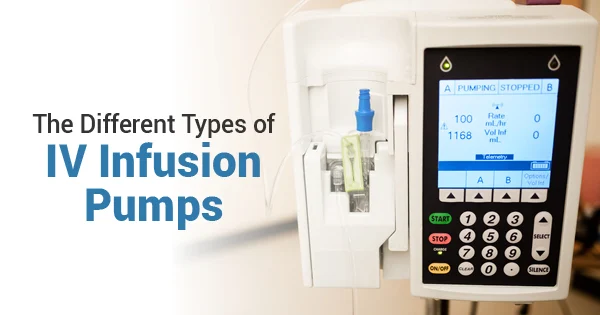The Different Types of IV Infusion Pumps

If they have prescribed you an IV-delivered medication or are receiving care frequently at a hospital, you’re likely wondering about how to set up an IV infusion pump and the different infusion pumps that exist. IV infusion pumps are a common sight in hospitals and other healthcare settings, so understanding a little about how they work can help make your treatment less stressful. There are a few different IV pumps that exist; read on to learn more about them.
Gravity Infusion Devices
Gravity infusion devices are one of the most common types of IV systems used and are what you think of when you think of an IV pump. This system uses gravity to deliver medication, making it simple and low-cost. This was the first infusion pump used and has been in use since the late 1960s. Depending on the viscosity of the fluid being infused, this method may not be an option. Additionally, this method may be difficult to use precisely.
Volumetric Pumps
These devices are used for large amounts of medication being delivered. Typically, they’re more advanced, with many featuring smart pump features, such as alert systems should something go wrong. However, if you want to know how to set up an IV infusion pump like this, you’ll need specialized training, meaning this option isn’t always as accessible.
Patient-Controlled Analgesia Pumps
As the name would suggest, these types of pumps allow patients to control their dosage as necessary. There are highly effective safety systems put in place to prevent overdosing. These pumps are best implemented for specific medications, rather than long-term, consistent treatment.
Syringe Pumps
Syringe pumps deliver small doses of high concentration medications over the course of a longer period of time. Similar to volumetric pumps, these are also often difficult to use and require specialized training to be implemented.
Looking for IV infusion pumps for your medical practice? Med One Group has a wide variety of IV infusion pumps available, including smart pumps. They have additional hospital equipment rentals available; contact us today for more information on what equipment may be available and helpful to your medical practice.
